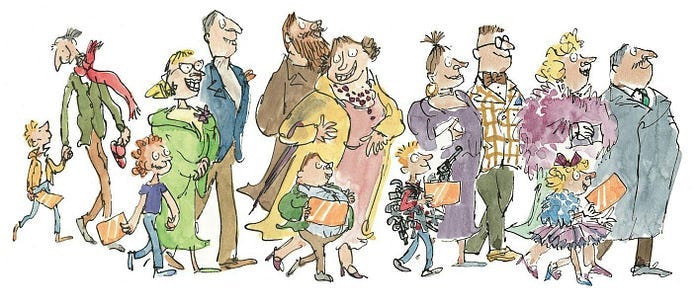Cosset: To Care for Someone in an Overindulgent Way - English
On the types of care and their consequences
There are a million ways to raise a child, any parent would understand that in a second. Mostly, you adopt a parenting style that is similar to the kind of character you have. You choose one from the millions of parenting styles. But there is one thing that never changes.
Worry.
I have never met a mother or father who is not worried. No matter how worry-free you are, no matter how much you are a parent who lets life take its course, everything is different when they run to you for doctor's check-ups, for school choices, for bleeding knees. Worry is perhaps needed, it is what balances all the happiness of being a parent, it is one of the foundations that keeps life going.
But if the worry is too much, life becomes hell. Either the parents and the child find themselves in an overly limited and boring life, or with a child who has been spoiled too much, a cautionary picture emerges of parents who revolve around their children, worshipping them as if there is nothing else in life but them.

The word cosset, which comes from Old English, refers to a situation created by this excessive attention and care. To paste the image of a abnormally-cute and perfect child in one's mind onto a normal child.
At this point, Roald Dahl gives us a festive universe of weird parents. Charlie and the Chocolate Factory is quite rich about this. All the children except Charlie are the products of cossetting parents. Not a simple and sincere care but over-exaggerated performances.
Augustus Gloop, a 9-year-old obese and greedy boy, and his proud-of-her-enormous-son mother. Veruca Salt is a spoiled and greedy brat who is demanding of everything she sees. Violet Beauregarde is a self-centered, unpleasant, and gum-obsessed girl who is proud of chewing the same thing for three months. Mike Teavee, a 9-year-old boy who only watches television and especially enjoys violent scenes.
I’m pretty sure that you’ve just remembered a few examples of cosseted children and their adulthood stories. May God protect us all from the wrath of such parents and from being such parents.
〰️
When it comes to parenting, as the mother of a 13-year-old teenager, my Bible is Kahlil Gibran’s poem On Children:
And a woman who held a babe against her bosom said, Speak to us of Children.
And he said:
Your children are not your children.
They are the sons and daughters of Life’s longing for itself.
They come through you but not from you,
And though they are with you yet they belong not to you.You may give them your love but not your thoughts,
For they have their own thoughts.
You may house their bodies but not their souls,
For their souls dwell in the house of tomorrow, which you cannot visit, not even in your dreams.
You may strive to be like them, but seek not to make them like you.
For life goes not backward nor tarries with yesterday.
You are the bows from which your children as living arrows are sent forth.
The archer sees the mark upon the path of the infinite, and He bends you with His might that His arrows may go swift and far.
Let your bending in the archer’s hand be for gladness;
For even as He loves the arrow that flies, so He loves also the bow that is stable.
I wish everyone a great weekend and a week filled with sincere care and love.
Till next week,
— Gulsun
Thank you for taking the time to accompany me in the story of a new word. Every word of the world’s languages is also ours, belonging to humanity while giving us an essence of the culture in which it was rooted.
We are made of stories—that is, of words.




Cosseting then is “over-functioning” (ref. #Bowenism). Such parenting behavior &/or Action(s) In Relationship Systems (AIRS) Enables Dependency/“under-functioning,” undermines initiative, & is a form of “emotional enmeshment”
which fosters “learned helplessness.” Ty.